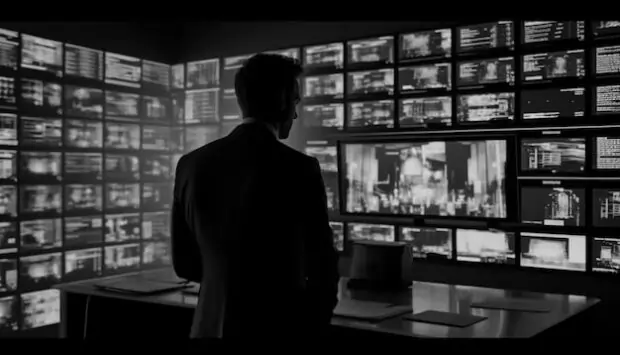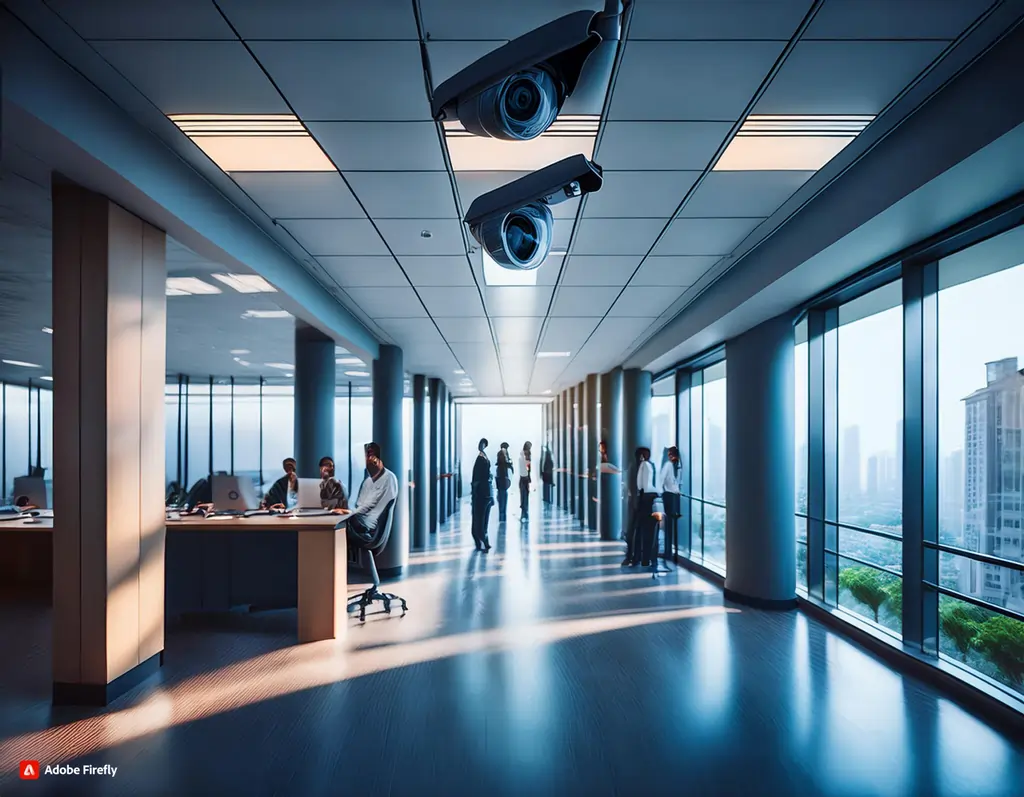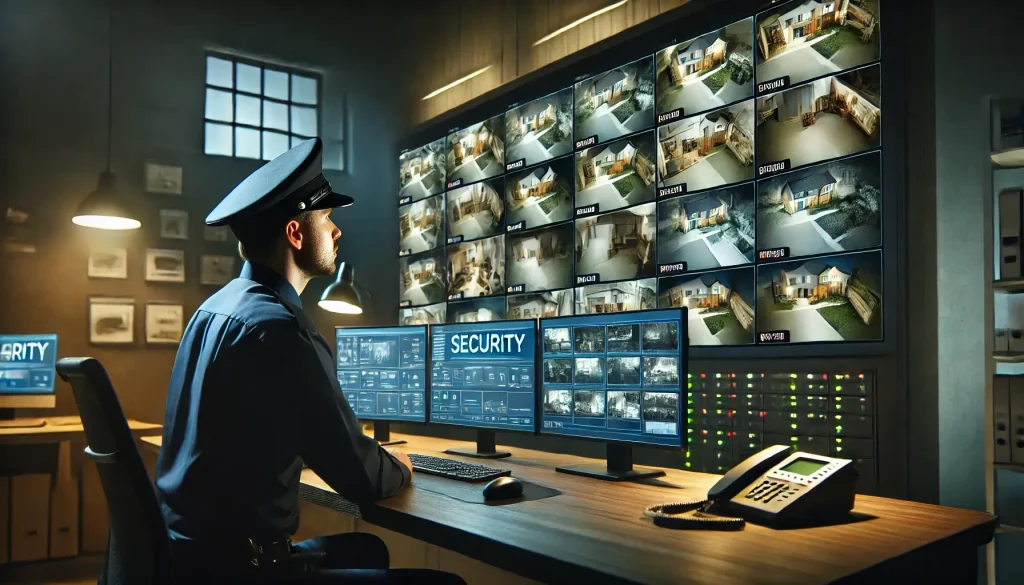The Importance Of Remote Security for Businesses in the USA
In the digital age, security is no longer confined to physical barriers and on-site guards. Remote security solutions have become increasingly vital for modern businesses in the USA, providing enhanced protection, efficiency, and peace of mind. This article delves into the reasons why remote security is essential for contemporary enterprises and how it can be effectively implemented.
Understanding Remote Security
Remote security involves monitoring and managing security systems from a distance. This can include video surveillance, access control, alarm systems, and cybersecurity measures, all managed through internet-connected devices and platforms.
How Remote Security Works
Remote security systems use a combination of hardware and software to provide real-time monitoring and alerts. Cameras, sensors, and access control devices are installed on-site, while the data they collect is transmitted to a central monitoring system. Security personnel or business owners can then access this data remotely via smartphones, tablets, or computers.
The Importance of Remote Security for Modern Businesses
1. Enhanced Protection
Remote security systems provide comprehensive coverage of business premises. Advanced cameras and sensors can monitor all areas, including those that are hard to reach or typically overlooked. With real-time monitoring, businesses can respond immediately to any security breaches. This reduces the risk of theft, vandalism, and other security threats.
2. Cost-Effectiveness
Remote security systems can significantly reduce the need for on-site security personnel, cutting down on labor costs. Automated systems can perform many tasks that would otherwise require human intervention. Many insurance companies offer lower premiums for businesses that have comprehensive remote security systems. This is because these systems reduce the likelihood of theft or damage claims.
3. Flexibility and Scalability
Remote security systems are easily upgradable, allowing businesses to add new features and capabilities as their needs evolve. This makes it a future-proof investment. Whether a business is a small startup or a large enterprise, remote security systems can be scaled to fit any size and complexity. This flexibility ensures security measures grow with the business.

4. Improved Incident Response
Remote security systems provide immediate alerts to security personnel or business owners. This rapid notification allows for quick action, whether it’s contacting law enforcement or addressing the issue directly. These systems also offer detailed reporting and analytics. Businesses can review incidents and identify patterns, helping to improve security strategies over time.
5. Integration with Other Systems
Remote security solutions can seamlessly integrate with other business systems, such as fire alarms, HVAC controls, and access management systems. This integration enhances overall operational efficiency and safety. A centralized management platform allows businesses to control all security aspects from a single interface. This unified approach simplifies management and ensures nothing is overlooked.
6. Safer For The Guard
Another significant advantage of remote monitoring is the increased safety it provides for security personnel. Guards no longer need to physically approach potential threats, which can be particularly dangerous in the case of armed intruders. By monitoring from a secure location, guards can observe and assess situations in real-time, ensuring their own safety while coordinating an appropriate response. This remote capability allows for swift action, such as alerting law enforcement without exposing guards to direct harm.
Traditional Security v/s Remote Security
Unlike traditional security systems that rely heavily on physical presence, remote security utilizes advanced technology such as high-resolution cameras, motion detectors, and real-time monitoring to provide comprehensive coverage. This shift not only enhances the effectiveness of security measures but also offers significant cost savings and operational efficiencies. Remote security systems are capable of providing continuous surveillance without the need for constant human oversight, thereby reducing the risk of human error and ensuring a higher level of security. Additionally, the integration of advanced analytics and immediate alerts allows for quicker response times to potential threats, further reinforcing the superiority of remote security over traditional methods.
1. Cost Efficiency and Reduction in Theft
Remote security systems offer significant cost savings compared to traditional security methods. According to a study by Allied Market Research, businesses that implement remote security solutions can reduce their security-related costs by up to 30%. For example, a national retail chain reported a 30% reduction in theft incidents after installing remote security systems, which also led to a significant decrease in overall security expenses.

2. Enhanced Surveillance and Quick Response
The capability of remote security systems to provide continuous, real-time monitoring ensures that any suspicious activity is detected and addressed immediately. A case study involving a car dealership in California demonstrated a 40% reduction in vehicle theft and vandalism due to the installation of high-resolution cameras and motion detectors. This immediate detection and response capability is a distinct advantage over traditional security measures that may not offer the same level of constant vigilance and quick action.
3. Compliance and Risk Mitigation
Industries with stringent regulatory requirements, such as cannabis facilities, benefit greatly from remote security systems. These systems not only ensure compliance with regulatory standards but also significantly reduce the risk of internal theft and unauthorized access. For instance, a cannabis facility in Colorado experienced a marked improvement in security and regulatory compliance through the use of real-time video surveillance, access control, and environmental monitoring, as reported by Security Sales & Integration.
Case Studies: Businesses Benefiting from Remote Security
Case Study 1: Car Dealership
A car dealership in California implemented a remote security system to monitor its lot and showroom. The system included high-resolution cameras and motion detectors. The dealership experienced a 40% reduction in incidents of vehicle theft and vandalism, and the detailed footage helped resolve customer disputes quickly.

Case Study 2: Cannabis Facility
A cannabis cultivation and dispensary facility in Colorado installed a remote security system to follow stringent regulatory requirements. The system provided real-time video surveillance, access control, and environmental monitoring. This not only ensured compliance but also significantly reduced the risk of internal theft and unauthorized access, leading to a more secure operation.
Case Study 3: Manufacturing Plant
A manufacturing plant in the Midwest utilized remote security to monitor its extensive facilities. The system’s comprehensive coverage and immediate alerts helped prevent unauthorized access and equipment theft, leading to increased operational efficiency and safety.
Case Study 4: Retail Chain
A national retail chain implemented remote security systems across its stores in the USA. The system included video surveillance, access control, and real-time monitoring. As a result, the chain saw a 30% reduction in theft incidents and a significant decrease in security-related costs.

Case Study 5: Corporate Office
A large corporate office in New York installed a remote security system to monitor its premises. The system’s real-time alerts and detailed reporting helped the company quickly address potential threats and improve its overall security posture. The office also benefited from lower insurance premiums due to the enhanced security measures.
Tips for Implementing Remote Security
Conduct a Security Assessment
Before implementing a remote security system, conduct a thorough security assessment of your business premises. Identify vulnerable areas and determine your company’s specific needs.
Choose the Right Equipment
Invest in high-quality cameras, sensors, and access control devices. Ensure that the equipment is compatible with your existing systems and can be easily upgraded in the future.
Train Your Staff
Proper training is essential for the effective use of remote security systems. Ensure that your staff knows how to operate the system, respond to alerts, and troubleshoot any issues that may arise.

Regular Maintenance and Updates
Regularly maintain and update your remote security systems to ensure they remain effective. This includes software updates, hardware checks, and reviewing security protocols.
Partner with a Reputable Security Provider
Partner with a reputable security provider who can offer expert advice, reliable equipment, and ongoing support. This ensures that your remote security system is always functioning optimally.
Conclusion
Remote security is no longer a luxury but a necessity for modern businesses in the USA. It offers enhanced protection, cost-effectiveness, flexibility, improved incident response, and seamless integration with other systems. By implementing solutions, businesses can safeguard their assets, reduce risks, and ensure peace of mind. Investing in remote security is an investment in your business’s future security and success.
Security content creator with OHZ Remote Guarding, focusing on advanced asset protection strategies during extended business closures and seasonal risks.
Related Reads



